Unlocking the Facts: Male Masturbation Side Effects Once a Week
Unlocking the Facts: Male Masturbation Side Effects Once a Week
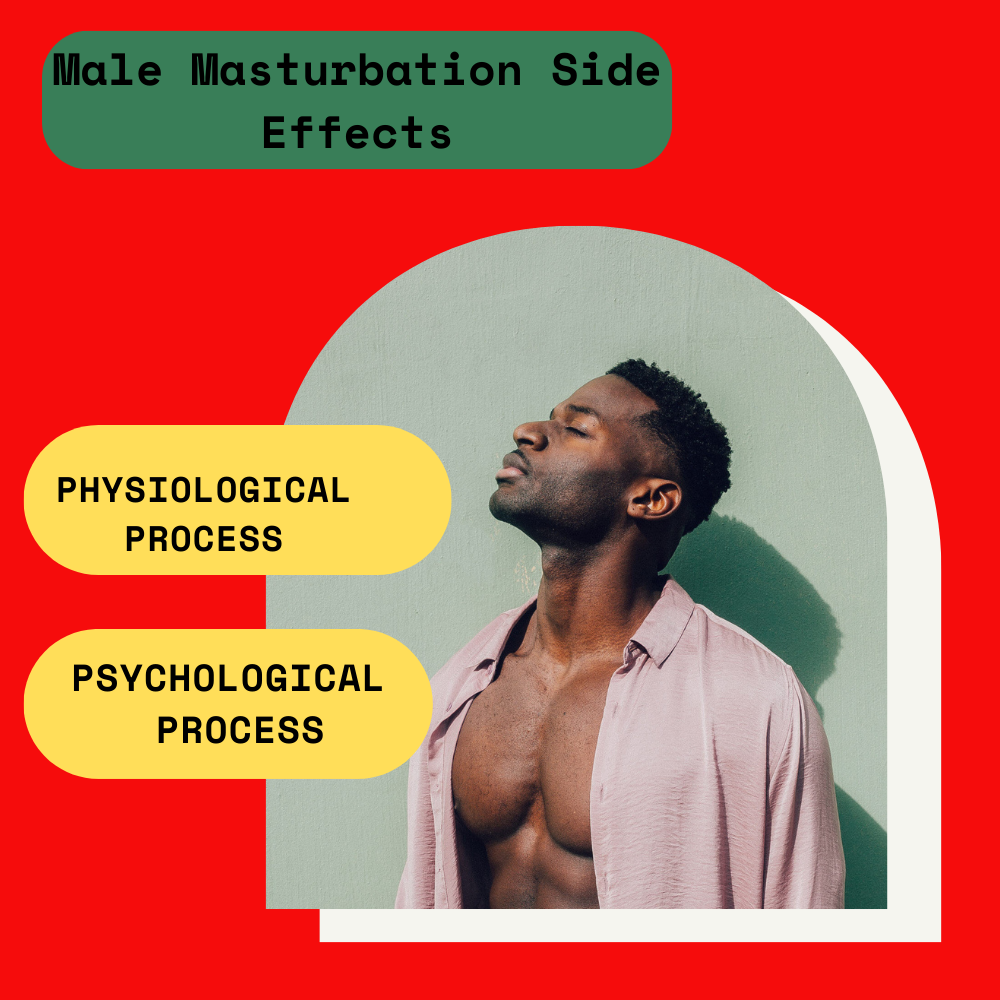
I. Introduction
A. Definition of male masturbation: Discuss the act of male masturbation, including the physiological process involved and its significance in human sexuality.
B. Frequency of once a week: Define what is meant by “once a week” in the context of male masturbation habits. Explore how this frequency compares to other habits and why it’s chosen as the focus of this study.
C. Purpose of the study: Explain the motivation behind examining the side effects of male masturbation at a frequency of once a week. Highlight the importance of understanding the potential implications for sexual and overall health.
D. Overview of the points to be covered: Provide a brief preview of the main topics that will be discussed in the following sections.
II. Understanding Male Masturbation
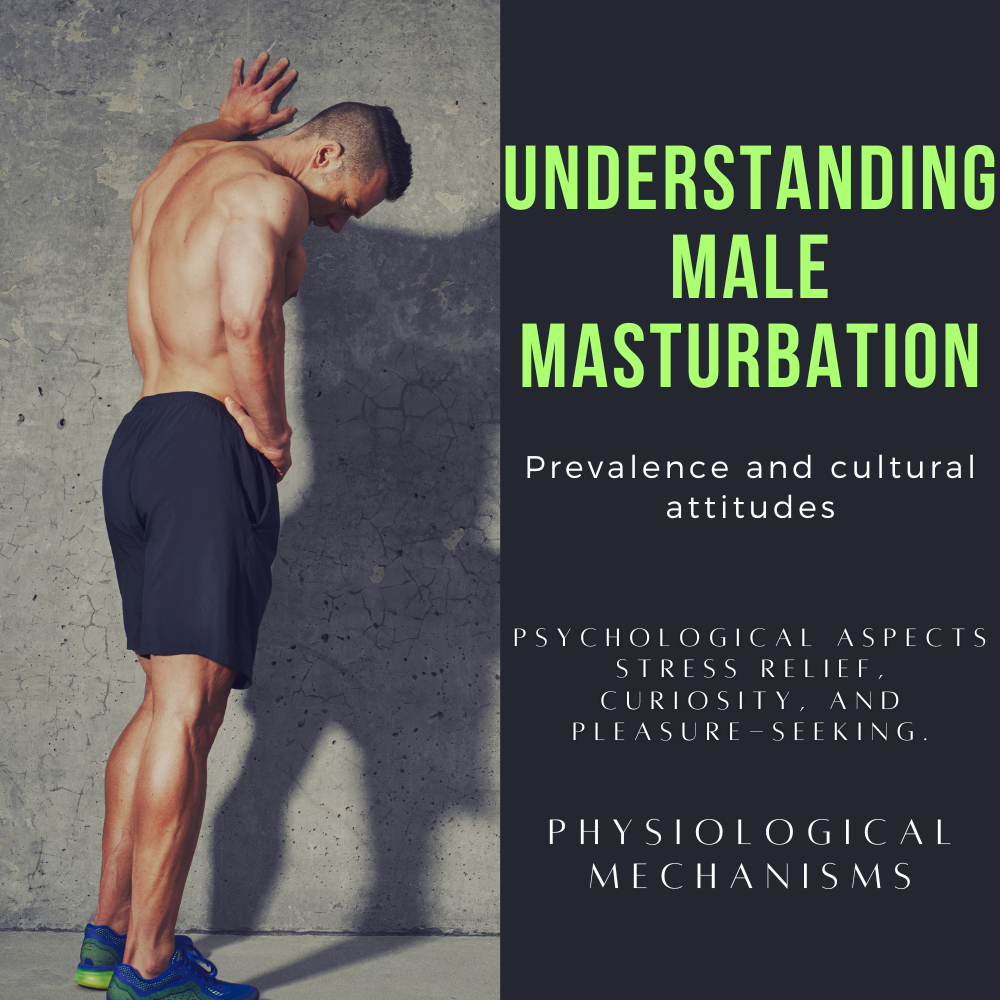
A. Definition and history: Trace the history of male masturbation, from ancient practices to contemporary perspectives. Explore cultural attitudes and societal perceptions surrounding this behavior.
B. Prevalence and cultural attitudes: Present statistics on the prevalence of male masturbation worldwide and discuss how cultural norms shape attitudes towards it.
C. Psychological aspects: Examine the psychological motivations behind male masturbation, including factors such as stress relief, curiosity, and pleasure-seeking.
D. Physiological mechanisms: Describe the physiological processes involved in male masturbation, including arousal, ejaculation, and refractory periods. Discuss how these mechanisms vary among individuals.
III. Frequency and Its Implications

A. Defining “once a week”: Clarify what constitutes “once a week” in terms of frequency of male masturbation. Consider variations in individual habits and cultural norms.
B. Typical male masturbation habits: Present research findings on the frequency of male masturbation and explore common patterns among different age groups and demographics.
C. Effects of frequency on sexual health: Discuss how the frequency of male masturbation may impact sexual health factors such as libido, erectile function, and fertility.
D. Psychological impact of frequency: Examine the psychological effects of regular masturbation, including its influence on mood, self-image, and relationships.
IV. Debunking Common Myths
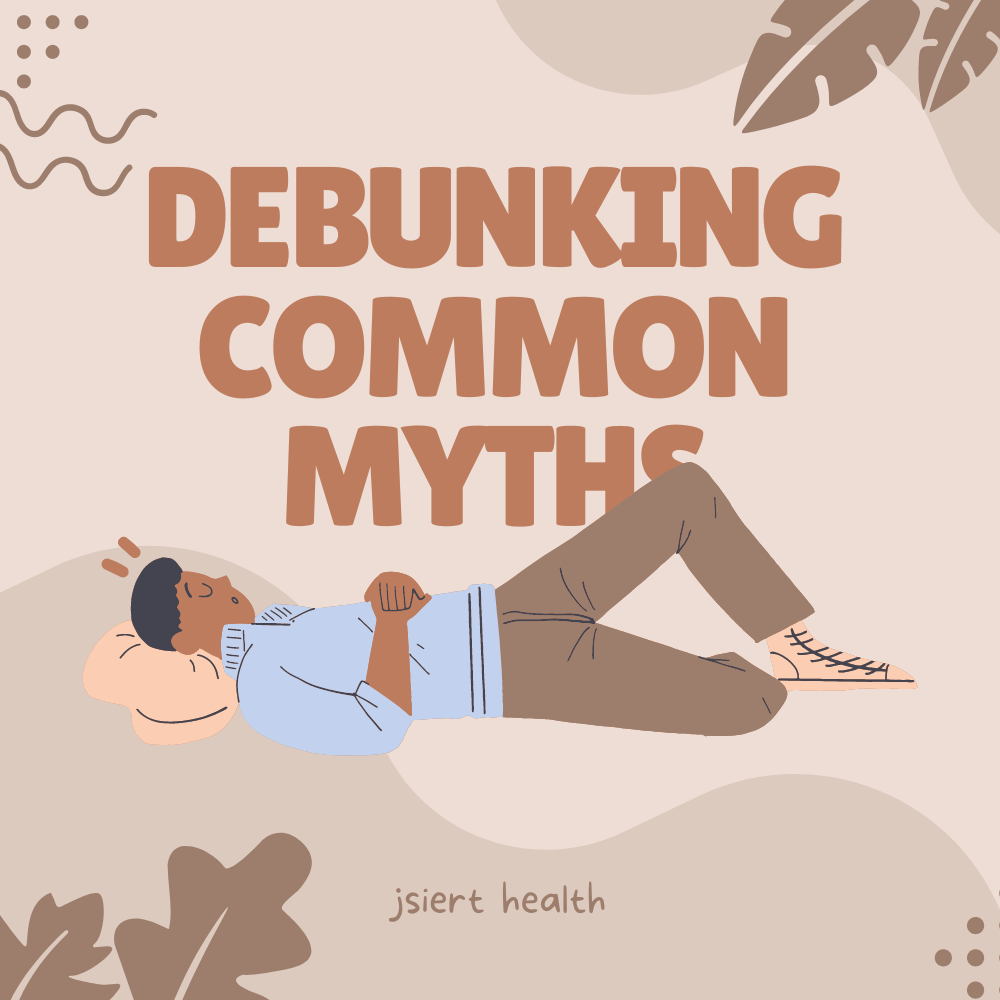
A. Myths surrounding male masturbation: Identify common misconceptions and myths about male masturbation, such as its alleged harmful effects on physical and mental health.
B. Scientific evidence against myths: Present empirical evidence and scientific studies that refute these myths and misconceptions, highlighting the actual risks and benefits of male masturbation.
C. Addressing misconceptions: Provide clear explanations and counterarguments to debunk prevalent myths surrounding male masturbation, promoting a more informed understanding of the topic.
V. Potential Side Effects of Once-a-Week Masturbation
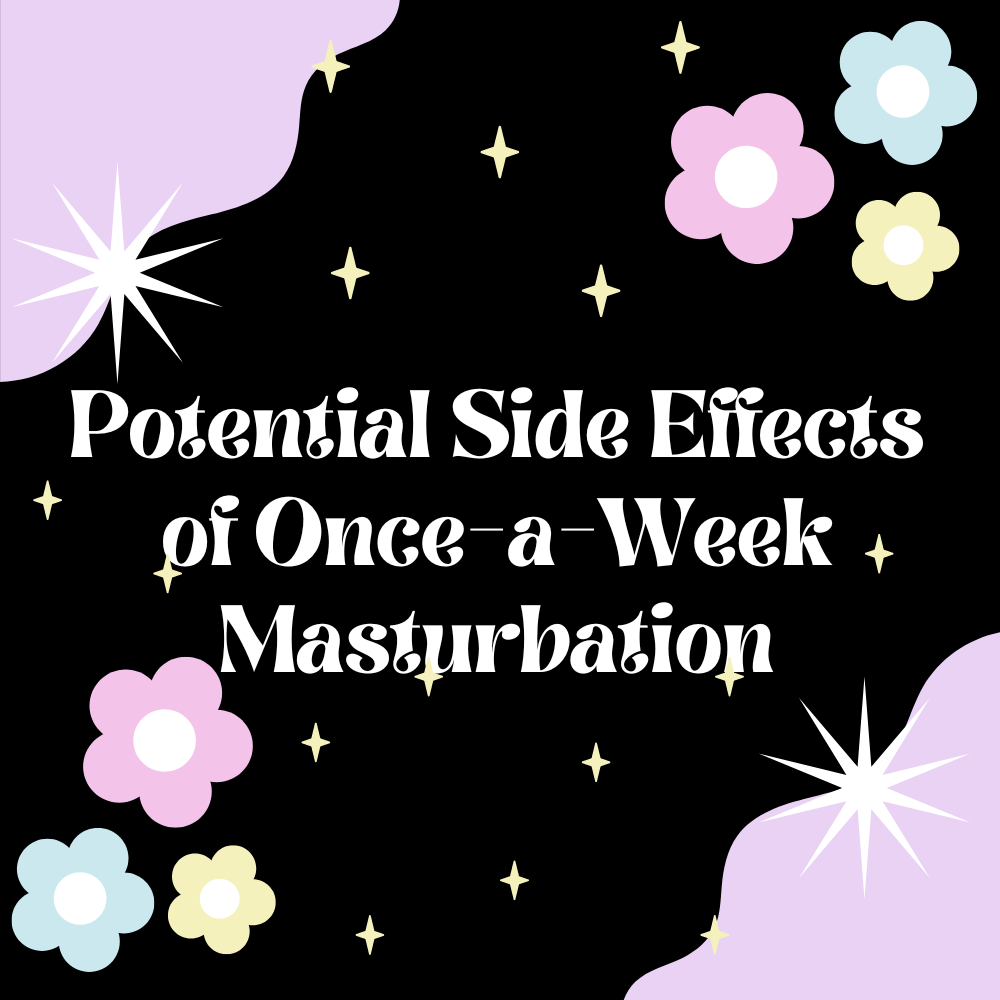
A. Physical side effects: Discuss potential physical consequences of once-a-week masturbation, including impacts on reproductive health, sexual performance, and the risk of injury.
B. Psychological side effects: Explore the psychological implications of regular masturbation, including the risk of addiction, effects on mental health, and potential challenges in interpersonal relationships.
VI. Benefits of Once-a-Week Masturbation
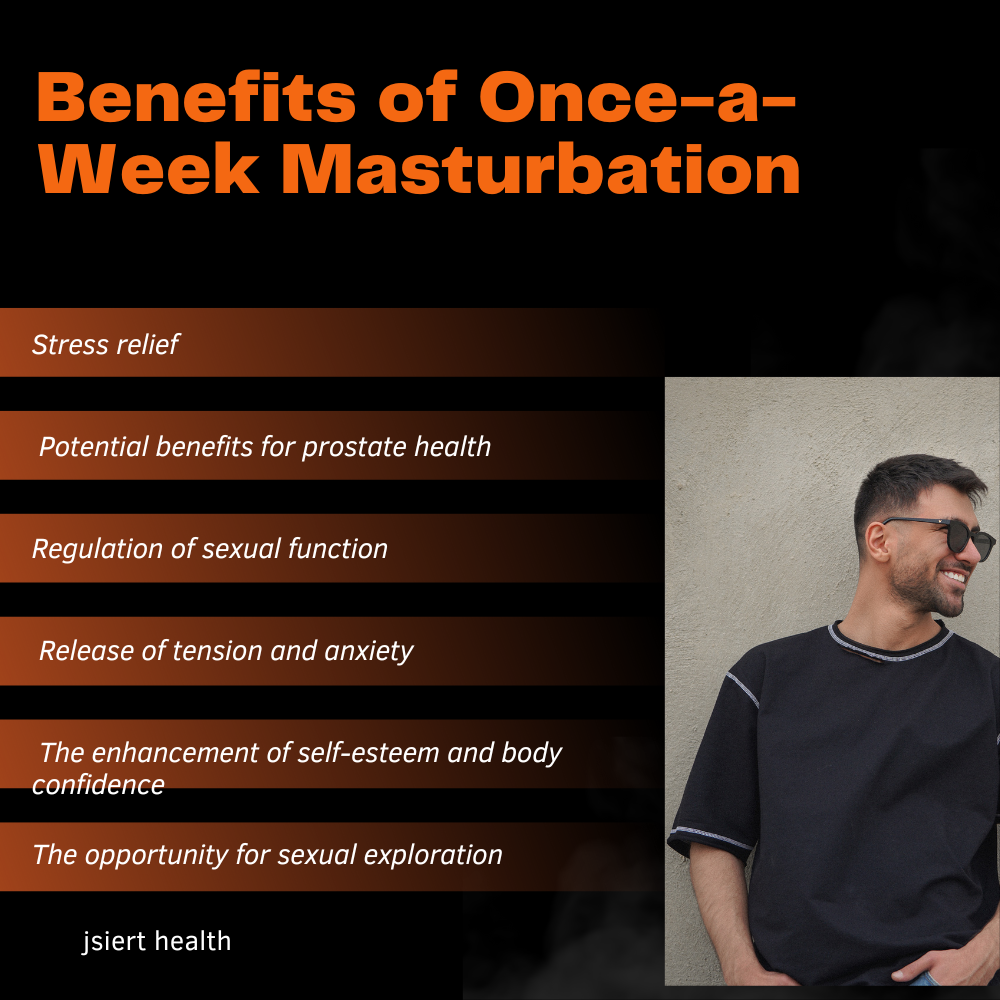
A. Sexual health benefits: Explore how once-a-week masturbation can positively impact sexual health, including stress relief, regulation of sexual function, and potential benefits for prostate health.
B. Psychological benefits: Discuss the psychological advantages of regular masturbation, such as the release of tension and anxiety, the opportunity for sexual exploration, and the enhancement of self-esteem and body confidence.
VII. Factors Influencing Masturbation Habits
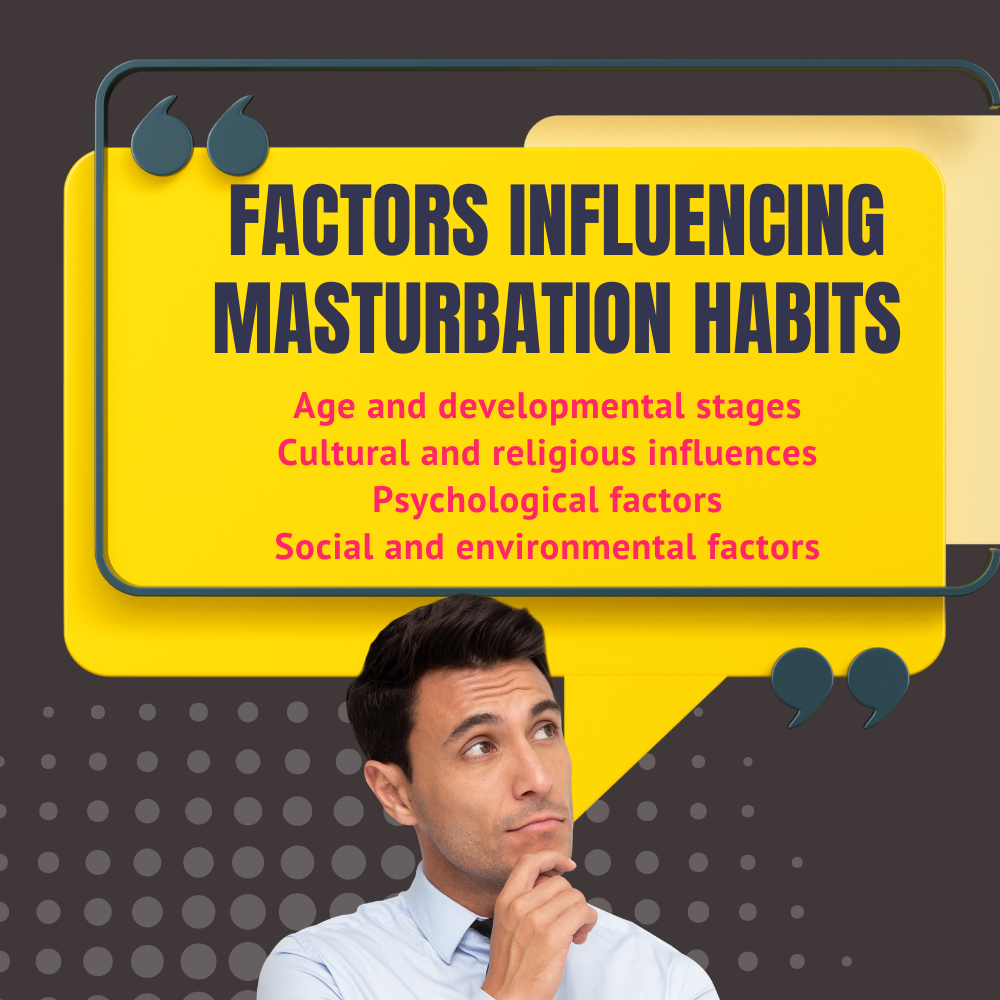
A. Age and developmental stages: Examine how age and developmental factors influence masturbation habits, including changes in frequency and attitudes towards masturbation across different life stages.
B. Cultural and religious influences: Discuss how cultural and religious beliefs shape attitudes towards masturbation, influencing individual behaviors and societal norms.
C. Psychological factors: Explore the psychological determinants of masturbation habits, including factors such as stress, boredom, loneliness, and sexual desire.
D. Social and environmental factors: Consider the impact of social and environmental factors, such as peer influences, media exposure, and access to privacy, on male masturbation habits.
VIII. Balancing Frequency for Optimal Health

A. Understanding individual needs and preferences: Emphasize the importance of self-awareness and understanding one’s own sexual needs and preferences when determining masturbation frequency.
B. Importance of communication and self-awareness: Highlight the role of open communication with partners and the importance of setting personal boundaries and goals for healthy masturbation practices.
C. Seeking professional guidance when necessary: Encourage individuals to seek professional guidance from healthcare providers or therapists if they experience difficulties related to masturbation or sexual health.
D. Incorporating healthy habits and behaviors: Discuss the importance of maintaining a balanced lifestyle, including regular exercise, adequate sleep, and stress management, in supporting overall sexual and mental well-being.
IX. Case Studies and Real-Life Experiences

A. Interviews with individuals: Present case studies and interviews with individuals who engage in once-a-week masturbation, exploring their motivations, experiences, and perceptions of the practice.
B. Personal narratives and anecdotes: Share personal narratives and anecdotes from individuals about their experiences with once-a-week masturbation, highlighting common themes and unique perspectives.
C. Analysis of common themes and experiences: Analyze the data collected from case studies and personal narratives to identify common patterns, challenges, and benefits associated with once-a-week masturbation.
X. Strategies for Healthy Masturbation Practices
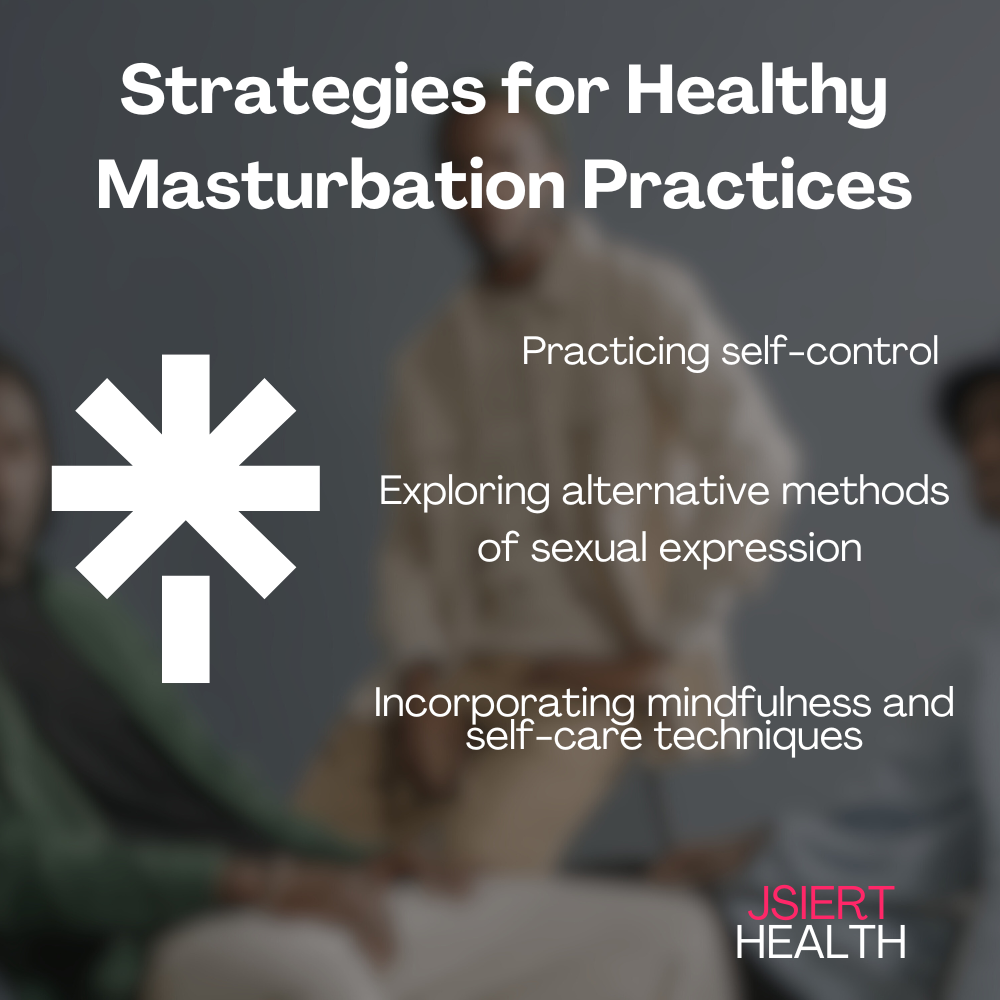
A. Setting boundaries and goals: Provide practical tips for setting boundaries and goals for healthy masturbation practices, including establishing a comfortable frequency and practicing self-control.
B. Exploring alternative methods of sexual expression: Encourage individuals to explore alternative methods of sexual expression, such as fantasy, erotica, or mutual masturbation, to diversify their sexual experiences.
C. Incorporating mindfulness and self-care techniques: Recommend mindfulness and self-care techniques, such as deep breathing, meditation, or progressive muscle relaxation, to enhance the quality of masturbation experiences and promote overall well-being.
D. Building a supportive network: Emphasize the importance of building a supportive network of friends, partners, or online communities where individuals can discuss their experiences, seek advice, and receive validation without judgment.
XI. Conclusion
A. Recap of key points: Summarize the main findings and key points discussed throughout the paper, highlighting the implications for male masturbation habits and overall sexual health.
B. Importance of informed decision-making: Stress the importance of making informed decisions about masturbation frequency based on individual needs, preferences, and goals, rather than succumbing to societal norms or misconceptions.
C. Recommendations for further research: Identify areas for further research and exploration, including longitudinal studies on the long-term effects of once-a-week masturbation and interventions to promote healthy sexual behaviors.
D. Final thoughts: Offer final reflections on the significance of understanding male masturbation habits and their impact on physical, psychological, and relational well-being, emphasizing the importance of promoting a sex-positive and evidence-based approach to sexual health.
Some frequently asked questions (FAQs) about the MALE MASTERBATION along with their answers:
- What is male masturbation?
- Male masturbation is the act of stimulating one’s own genitals for sexual pleasure. It typically involves techniques such as stroking, rubbing, or using sex toys to achieve orgasm.
- Is male masturbation normal?
- Yes, male masturbation is entirely normal and common. It’s a natural aspect of human sexuality and can provide numerous physical and emotional benefits, including stress relief, improved mood, and enhanced sexual satisfaction.
- Are there any health benefits to male masturbation?
- Yes, there are several health benefits associated with male masturbation. It can help relieve sexual tension, promote prostate health, improve sleep quality, and enhance sexual arousal and performance. Masturbation can also serve as a safe and natural way to explore one’s own body and sexual preferences.
- Can male masturbation affect fertility or reproductive health?
- No, male masturbation does not negatively affect fertility or reproductive health. In fact, regular ejaculation through masturbation or sexual intercourse can help maintain healthy sperm count and motility. Masturbation is a normal and safe way to release sexual tension and explore one’s sexuality.
- Is it safe to use sex toys for male masturbation?
- Yes, it is generally safe to use sex toys for male masturbation as long as they are used correctly and cleaned regularly. Using lubrication with sex toys can help reduce friction and discomfort. It’s important to choose high-quality toys made from body-safe materials and to follow the manufacturer’s instructions for proper use and maintenance.
- Can male masturbation lead to addiction or sexual dysfunction?
- No, occasional masturbation is not considered addictive or harmful. It’s a normal part of human sexuality. However, excessive masturbation that interferes with daily life or causes distress may indicate underlying issues and could benefit from professional guidance or therapy.
- Are there any cultural or religious beliefs about male masturbation?
- Cultural and religious beliefs about masturbation vary widely across different societies and traditions. Some cultures may view masturbation as taboo or immoral, while others may see it as a natural and healthy aspect of sexual expression. It’s important to respect individuals’ personal beliefs and values regarding sexuality.
- How can I explore male masturbation safely and comfortably?
- To explore male masturbation safely and comfortably, start by creating a private and relaxed environment where you feel comfortable and free from distractions. Experiment with different techniques, grips, and sensations to discover what feels pleasurable for you. Communicate openly with your partner if you have one, and prioritize consent, respect, and mutual pleasure in sexual experiences.